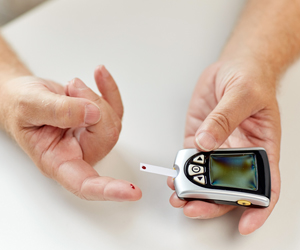High blood sugar levels may lead to memory loss in diabetes patients, according to a recent find by researchers.
The study led by Dr Jeff Williamson, M.H.S at the Wake Forest has shown that as the average blood sugar levels rise, cognitive functioning abilities subsequently declined in type 2 diabetes patients.The researchers found a significant inverse relationship between A1C levels i.e. average blood glucose levels over a period of two to three months and subjects' scores on four cognitive tests.
"One of the little known complications of type 2 diabetes is memory decline leading to dementia, particularly Alzheimer's dementia," said Williamson, a professor of internal medicine, director of gerontology and geriatrics research, and director of the Roena Kulynych Center for Memory and Cognition Research at Wake Forest Baptist.
"This study adds to the growing evidence that poorer blood glucose control is strongly associated with poorer memory function and that these associations can be detected well before a person develops severe memory loss," he added.
During the study, the researchers conducted a 30-minute battery of cognitive tests to nearly 3,000 individuals ages 55 years and older.
"The tests used in the study measured several aspects of memory function," said Williamson.
Advertisement
The results showed that 1 percent increase in A1C corresponded to slightly lower scores on tests of psychomotor speed, global cognitive function, memory and multiple task management.
Advertisement
"Patients also need to be open to having a family member periodically making sure they are keeping track of managing their diabetes through monitoring, diet, exercise and medication," he added.
The study appears in Diabetes Care.
Source-ANI
THK/L














